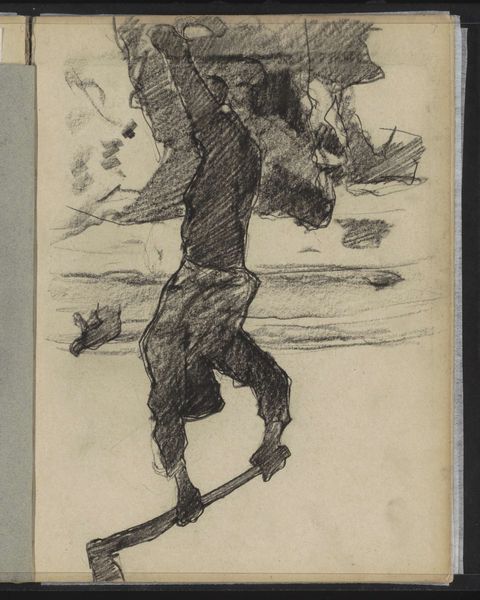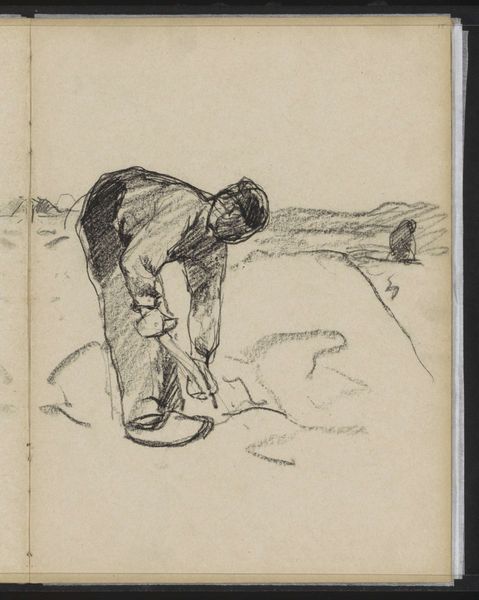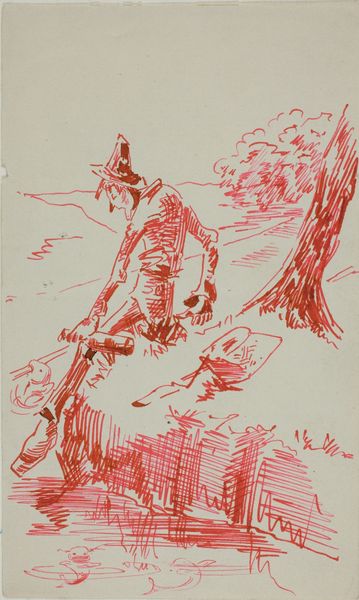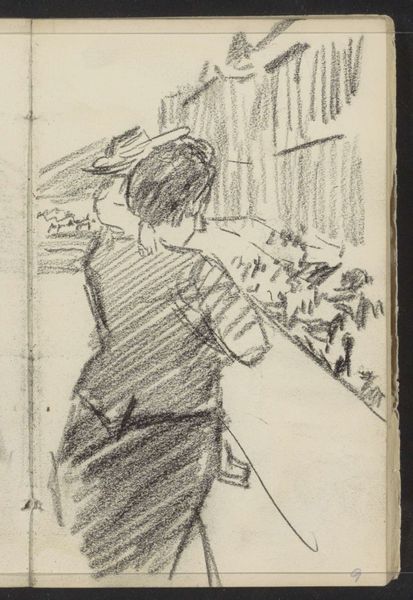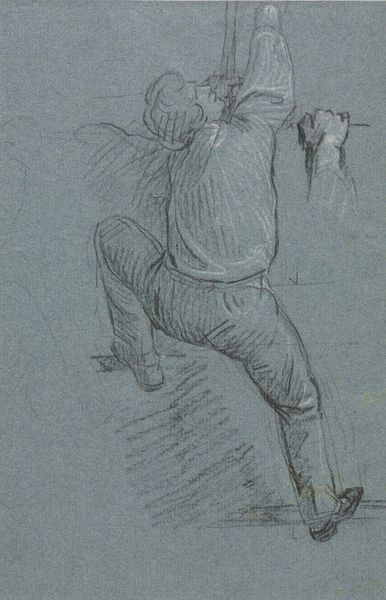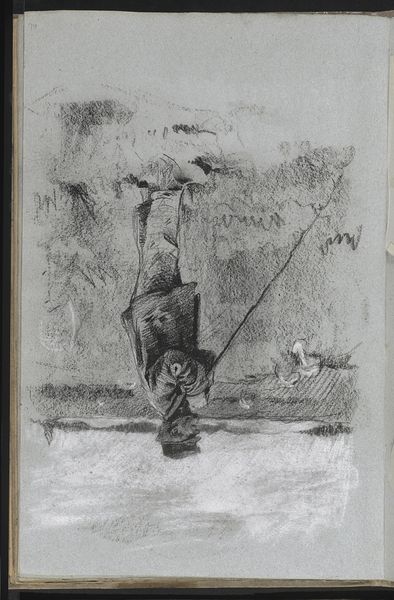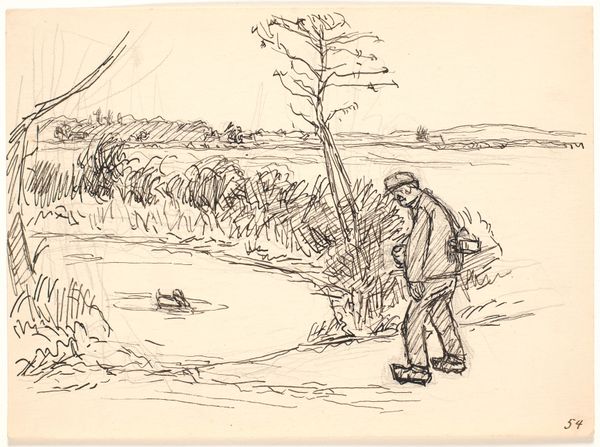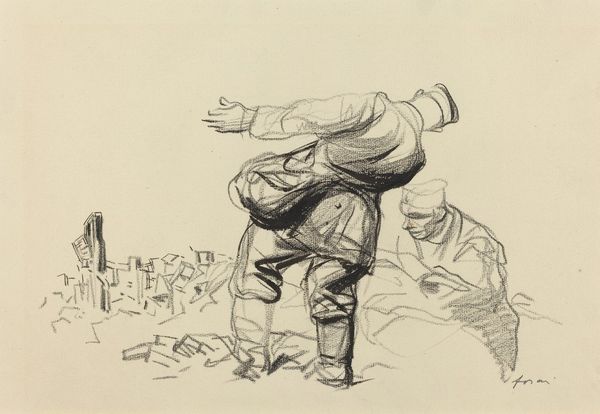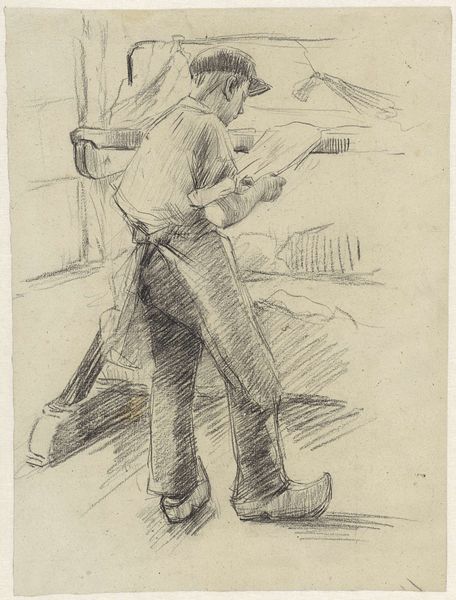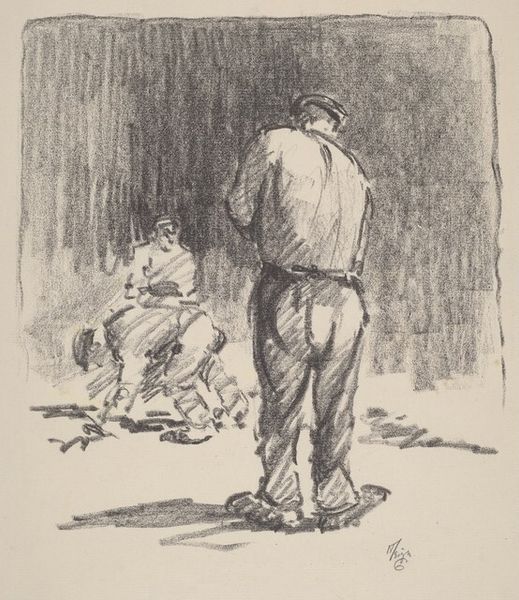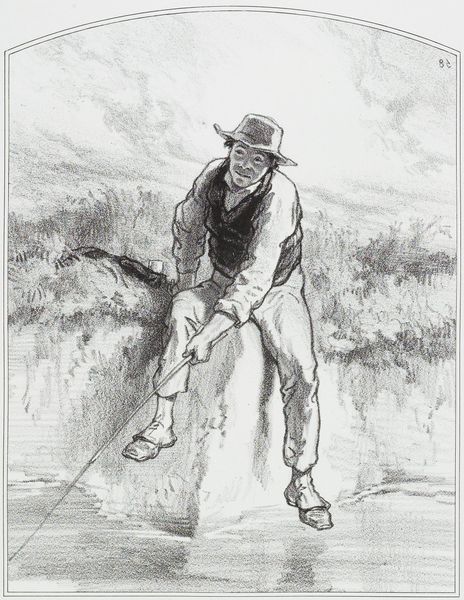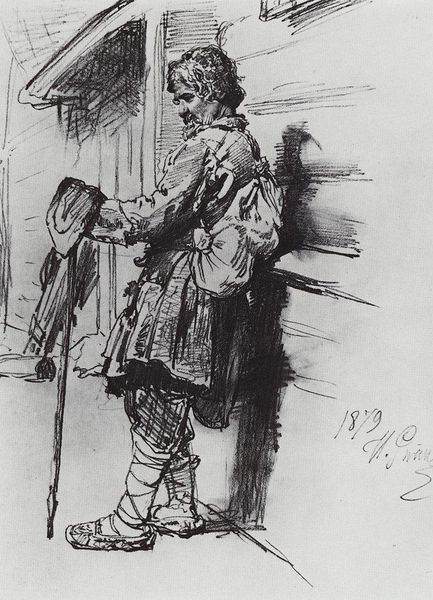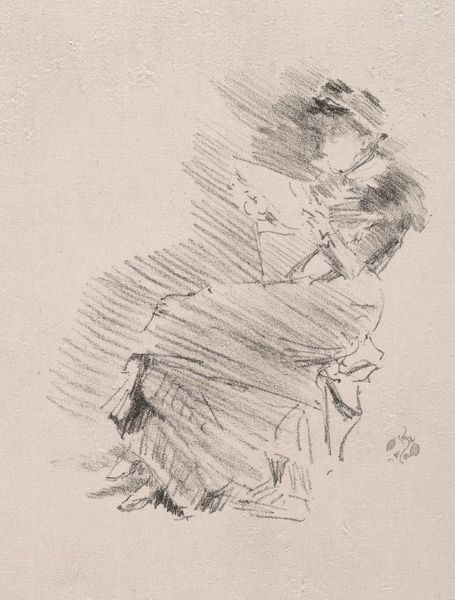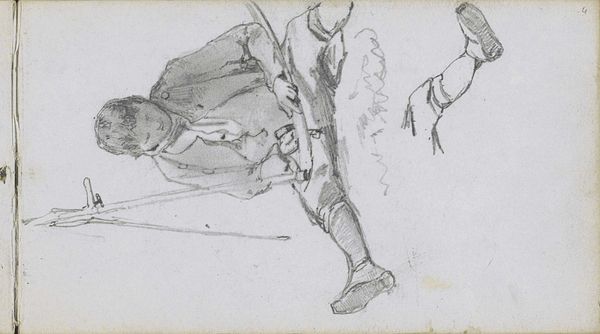
drawing, ink, pencil, charcoal
#
drawing
#
ink drawing
#
pen sketch
#
landscape
#
figuration
#
ink
#
pencil
#
expressionism
#
charcoal
Copyright: Public Domain: Artvee
Curator: Ernst Ludwig Kirchner rendered this work, titled "The Sower," around 1905. The artwork employs ink and charcoal. Editor: My first impression is the image evokes a powerful sense of raw, almost primal energy through the urgent, angular lines. Curator: Kirchner, along with other Die Brücke artists, were deeply concerned with how industrialization was influencing identity and traditional forms of life in Germany. Images of labor, especially agrarian work, became symbolic ways to explore themes of identity. Considering these contexts allows one to consider how such imagery could carry weight as more than observation. Editor: I agree. Notice how the sower dominates the composition. His posture is bent, almost defeated. To me, this signals both a submission to nature and a symbol of timeless labor. The roughly drawn furrows also have the same symbolism—each marked line is as representative as it is literal. What’s more, look at how he almost blends with the house and nature: this creates an implicit sense of duty to family, history, and labor. Curator: The interesting parallel you're drawing speaks to Kirchner's investment in these figures being both ordinary people while also representing the community's shared trauma. His figures become sites onto which the audience could project concerns. It asks whether industrial advancements serve only to disconnect humanity, further creating conditions of precarity that marginalize the human in favor of capital. Editor: That trauma, and also those symbols of rootedness, I think, have a very persistent cultural echo in how we still think about self-sufficiency, family values, and the importance of hard work. They remain highly evocative concepts to this day, not just as lived realities but as politically loaded ideals. Curator: By situating the man against this desolate landscape, the themes within his actions are underscored with both futurity and dread: both hope and despair that comes when considering that, as time progresses, those at the margins always get further left behind. Editor: In that respect, perhaps "The Sower" is really speaking to us now as much as it was then—making us question what endures, and who truly benefits.
Comments
No comments
Be the first to comment and join the conversation on the ultimate creative platform.
